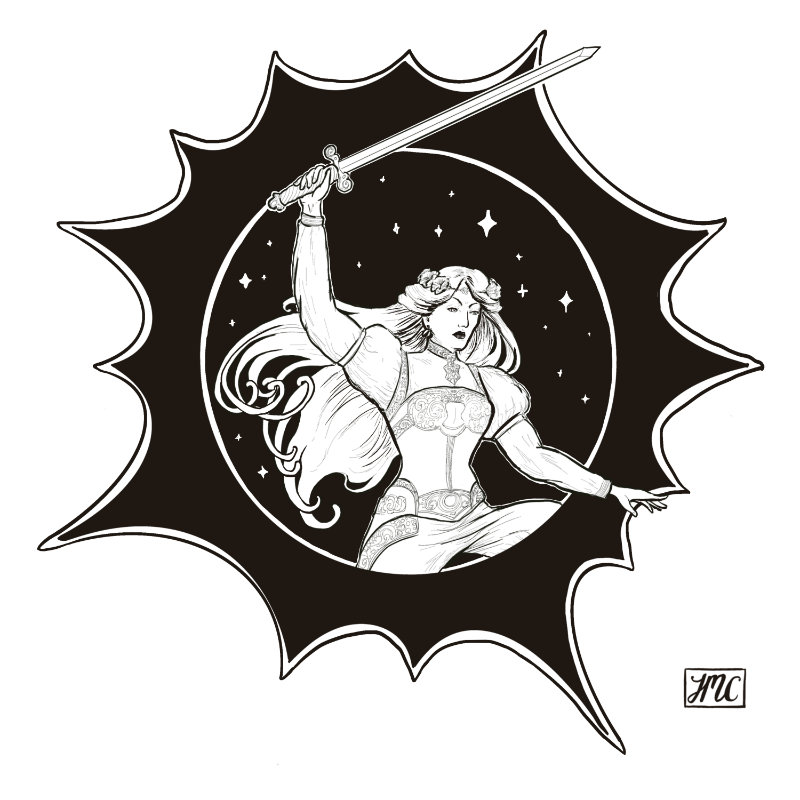Joanne Harris
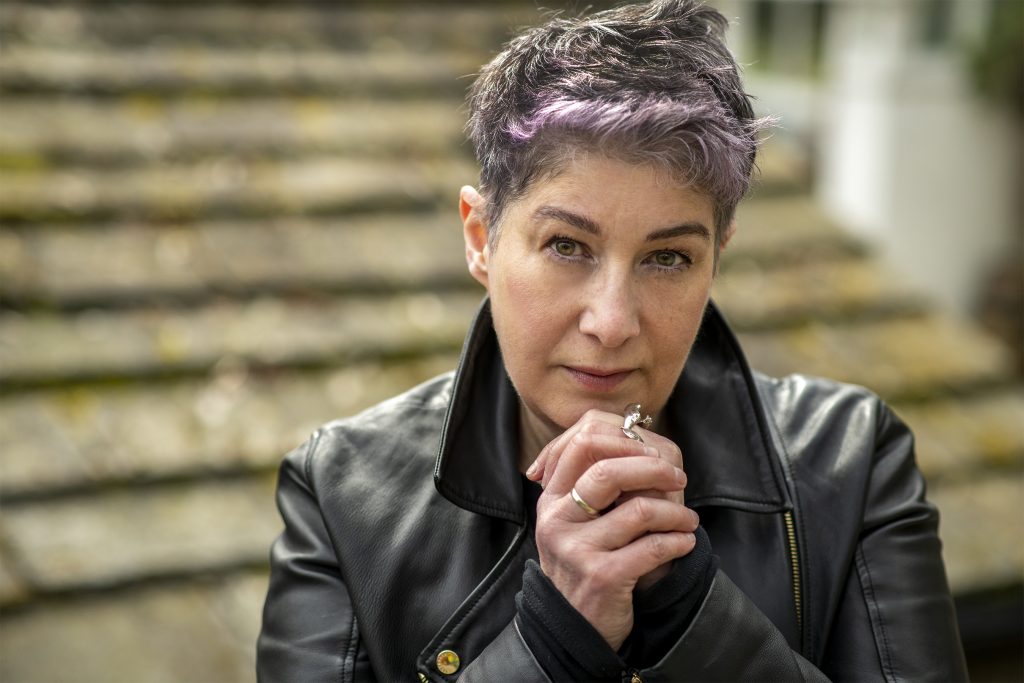
Joanne Harris (OBE, FRSL) was born in Barnsley in 1964, of a French mother and an English father. She studied Modern and Mediaeval Languages at Cambridge and was a teacher for fifteen years, during which time she published three novels, including Chocolat (1999), which was made into an Oscar-nominated film starring Juliette Binoche .
Since then, she has written over 20 more novels, plus novellas, short stories, game scripts, the libretti for two short operas, several screenplays, a stage musical (with Howard Goodall) and three
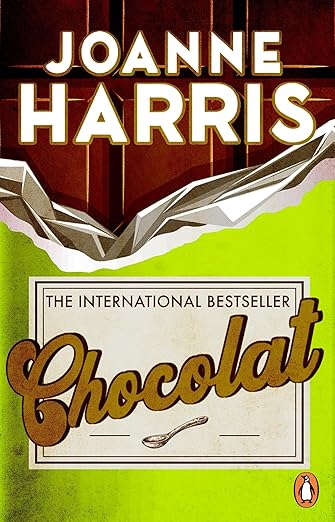
cookbooks. Her books are now published in over 50 countries and have won a number of British and international awards. She is an honorary Fellow of St Catharine’s College, Cambridge, has honorary doctorates in literature from the universities of Sheffield and Huddersfield, and has been a judge for the Whitbread Prize, the Orange Prize, the Desmond Elliott Prize, the Betty Trask Award, the Prima Donna Prize and the Royal Society Winton Prize for Science, as well as for the Fragrance Foundation awards for perfume and perfume journalism (for which she also received an award in 2017). She was elected a Fellow of the Royal Society of Literature in 2022.
She is a passionate advocate for authors’ rights, and was the Chair of the Society of Authors (SOA) for four years. She was a member of the Board of the Authors’ Licensing and Collecting Society (ALCS) between 2018 and 2024.
Reading Joanne Harris
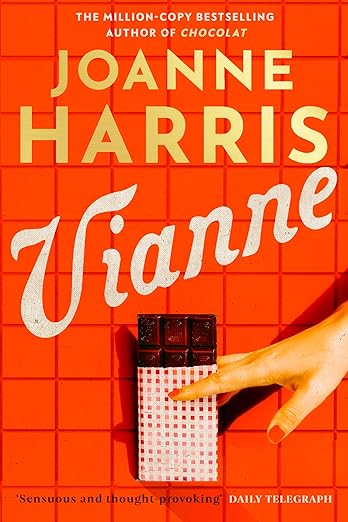
Harris’ work defies genre boundaries, writing as “Joanne M. Harris” for her fantasy and folklore books and without the “M” for her other works. She is perhaps best known for Chocolat, with its movie success, and the other works in that series, which while not marketed as fantasy, definitely have a sprinkle of magic on the characters and storylines.
The thing that stands out for me in her writing, is her deep compassion for the characters that she writes, they are so human, even when they are a Norse God with questionable morality.
Her Rune/Loki serise, somehow manages to be a fresh take on already well worked subject matter. I particually liked The Testament of Loki for it’s depiction of disabled characters, both with mental health conditions and physical disability. One of the characters had me wondering if he had the same diagnosis as myself, as his symptoms were so familiar. The human protagonists are teenagers, which might lead some to dismiss this as only for young adults, but in reality the writing is very much for all of us.
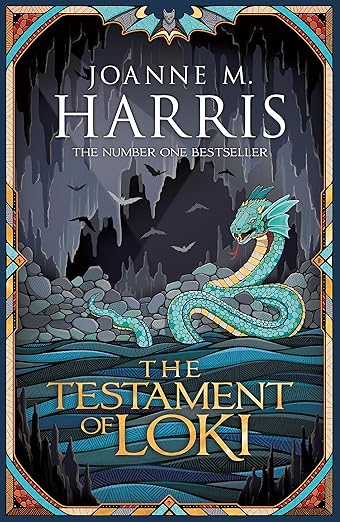
In this novel, the issue of consent and bodily autonomy, although presented within a fantasy-based mechanism, which I won’t elaborate on too much so as not to give too much away, was very much a theme. The idea that our life could be improved if we simply passed decision making to someone else might be a tempting one, particularly when life is complicated and difficult, but ultimately, we are the ones that have to deal with the consequences of those decisions. Allowing ourselves to be persuaded by someone else’s ideas or pressured to do things we are not comfortable with might be easier at the time, but those willing to use that kind of coercion are by definition are not looking out for us. Even as adults, we sometimes need a reminder that this is true in fantasy or reality.
Gollancz produced an absolutely beautiful set of folk tales, small hardbacks, with foil embossed covers and wonderful illustrations, to go along side the poignant writing of these lovely novellas by Harris.
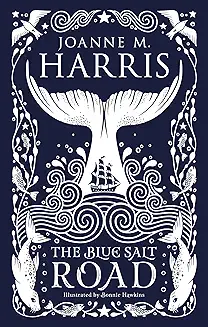
The Blue Silk Road feels like a folk tale that has been around forever, telling of selkies who can remove their skin and take human form, of men trapped into marriage by devious women and children who lost their heritage. The narrative feels familiar with an easy rhythm that washes against you like the sea in the tale itself.
The tale questions the nature of identity, asks if we define ourselves by our place in society, by our relationships with others. Flora, the female
protagonist, is desperately worried about becoming an old maid, of not finding someone to call her “wife”. She considers any possible match in the terms of how it would place her at church, in the social pecking order of other wives, she is prepared to risk a lot to get where she wants to be.
The writing asks us to consider identity in more internal ways, the labels that we choose for ourselves, in this case, man, folk, selkie, but real-world analogies exist also. When the Selkie loses his memory he forgets his clan, his family, his very identity and yet there was a part of him that could not accept the identity that Flora gave him, even without knowing why things felt wrong, it disgusted him in ways he could not explain. His identity was still a part of him no matter how much was stripped from his understanding.
It leaves us with the question, if we do not truly know ourselves, can we ever really love another? It is only when the Selkie regains his memory that he can consider his feeling for Fiona.
Irrespective of the subject matter at hand, Harris’ writing asks us to consider the human condition and calls for empathy for others who might be coming from a different perspective.
You can get more information about Joanne Harris’ many books on her website: https://www.joanne-harris.co.uk/
